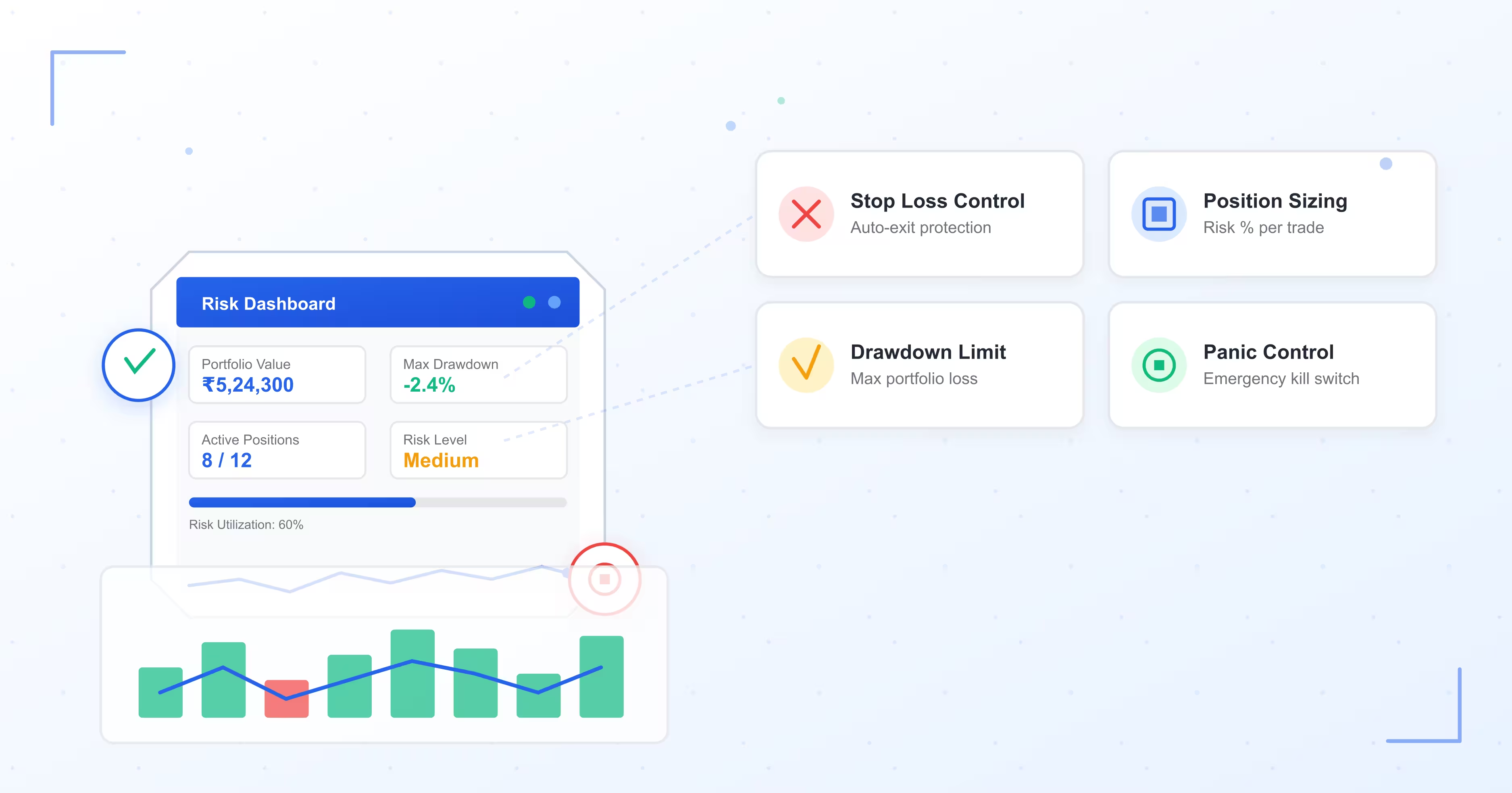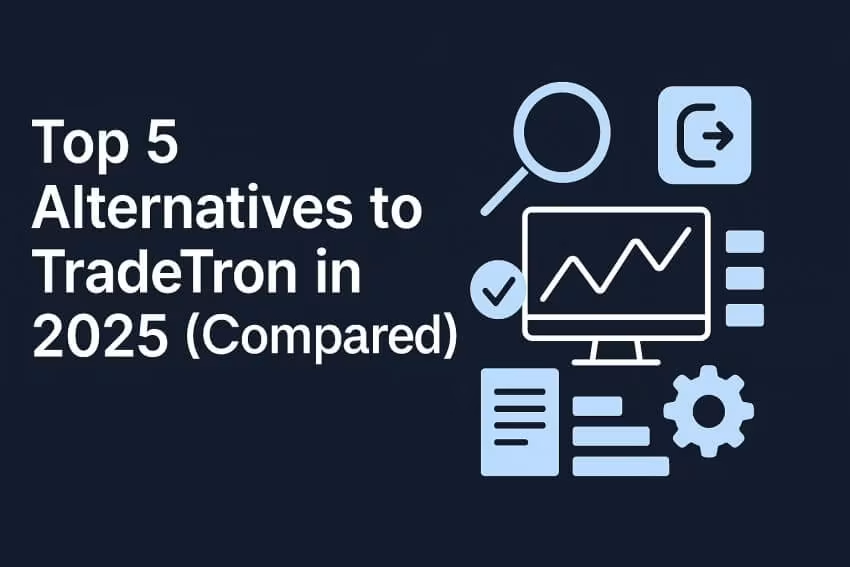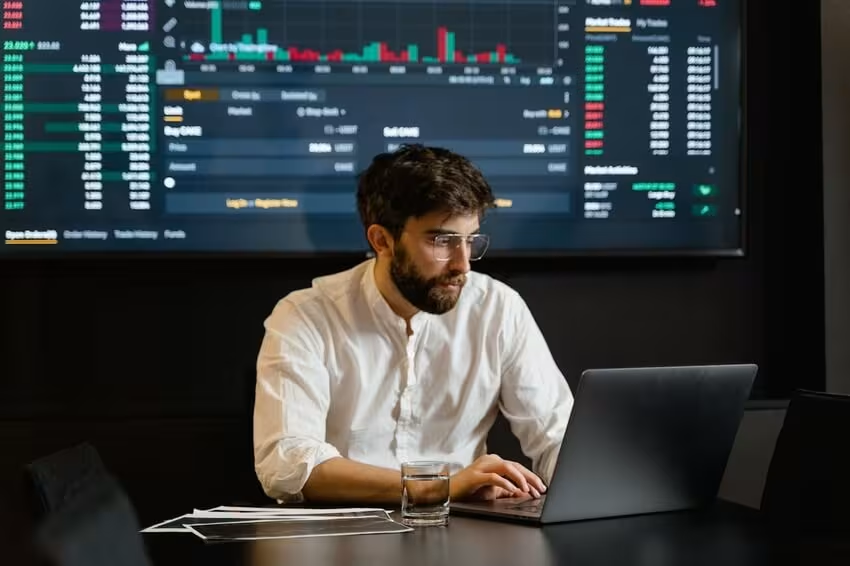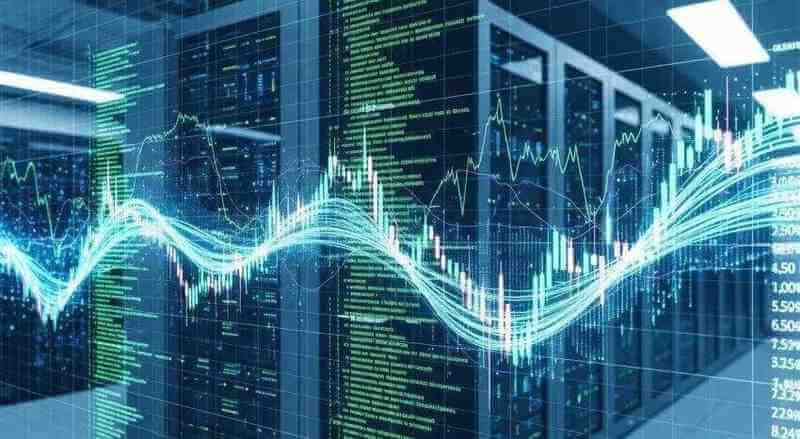In the dynamic landscape of finance, algorithmic trading stands as a revolutionary force reshaping the financial markets. This transformation is driven by the marriage of cutting-edge technology and sophisticated algorithms, bringing unprecedented speed, efficiency, and data-driven decision-making to the forefront. In this article, we explore the fundamental reasons behind the transformative impact of algorithmic trading, uncovering how it is redefining market dynamics and influencing the way financial transactions unfold.
Defining Algorithmic Trading
Algorithmic trading, often known as algo trading, involves the use of computer algorithms to execute trading strategies. It relies on mathematical models and computer programs to automate and optimise trading decisions. Algo trading platforms like uTrade Algos, aim to achieve efficient and timely execution of orders, leveraging speed and precision. This approach enables traders to respond rapidly to market conditions and execute trades at optimal prices.
Reasons Why Algorithmic Trading Is Transforming Financial Markets
Speed and Efficiency
Algorithmic trading operates at lightning speed, executing orders in fractions of a second. This unparalleled efficiency has revolutionised market dynamics, enabling rapid transactions, reducing latency, and ensuring timely responses to market changes.
Data-Driven Decision Making
The vast volumes of financial data are harnessed by algorithms to make informed and data-driven decisions. Machine learning and artificial intelligence algorithms analyse patterns, historical data, and market trends, providing traders with valuable insights for strategic decision-making.
Liquidity and Market Accessibility
Algorithmic trading programs, like uTrade Algos, enhance market liquidity by facilitating large trade volumes. Moreover, it has democratised market access, allowing a diverse range of participants, from institutional investors to individual traders, to engage in trading activities on an equal playing field.
Risk Management
Advanced risk management strategies embedded in algo trading platforms mitigate potential risks. Automated systems can instantly detect anomalies, trigger risk controls, and implement predefined risk-mitigation measures, safeguarding against market volatility.
Reduced Emotional Impact: Emotions can cloud judgment and lead to irrational decisions in traditional trading. Algo trading removes emotional biases by relying on predefined algorithms. This not only improves decision-making but also eliminates impulsive reactions to market fluctuations.
Market Microstructure Evolution: The rise of algorithmic trading programs has spurred a transformation in market microstructures. High-frequency trading (HFT) algorithms contribute to the evolution of markets, shaping how securities are traded, priced, and accessed.
Enhanced Market Efficiency: Algorithmic trading fosters market efficiency by narrowing bid-ask spreads, reducing transaction costs, and ensuring fairer pricing. This efficiency benefits both traders and investors, contributing to a more transparent and competitive financial ecosystem.
24/7 Trading Opportunities: Algorithmic trading operates tirelessly, providing the opportunity for continuous trading around the clock. This 24/7 availability opens up new possibilities and ensures that market participants can act on global events and news regardless of the time zone.
Risks of Algo Trading
Algorithmic trading offers numerous advantages, but caution is crucial to navigate potential pitfalls.
- Traders should be wary of over-reliance on historical data, as market conditions can evolve.
- The rapid execution speed of algorithms may amplify losses during unexpected market events, emphasising the need for robust risk management strategies.
- Additionally, ensuring the security of algorithmic systems is vital to prevent unauthorised access or cyber threats.
- Lastly, staying abreast of regulatory changes is essential, as evolving regulations can impact the use and deployment of algorithmic trading strategies.
Future of Algorithmic Trading in India
The future of algorithmic trading in India is marked by a transformative journey driven by technological advancements and evolving market dynamics.
- As accessibility to sophisticated technology grows, retail investors are poised to actively engage in algorithmic trading, ushering in a more inclusive market.
- The integration of artificial intelligence and machine learning algorithms is set to enhance adaptability and decision-making capabilities.
- Anticipated regulatory enhancements will ensure market integrity, cybersecurity measures will be prioritised, and the scope of algorithmic trading is expected to expand to encompass diverse asset classes.
- Collaboration between traditional and fintech players, a focus on environmental, social, and governance factors, and continuous technological advancements will further shape the landscape.
- With a keen eye on ethics and responsible practices, the future unfolds with algorithmic trading poised as a driving force in the evolution of India's financial markets.
Algo trading platforms, like uTrade Algos, stand as a revolutionary force reshaping financial markets by leveraging technology and sophisticated algorithms. This transformation is driven by its ability to enhance speed, efficiency, and data-driven decision-making. While algorithmic trading programs bring unprecedented advantages, it also introduces challenges, emphasising the importance of robust risk management and regulatory frameworks. As this technological evolution continues, algorithmic trading remains at the forefront, influencing how financial transactions unfold and redefining the dynamics of modern financial markets.












